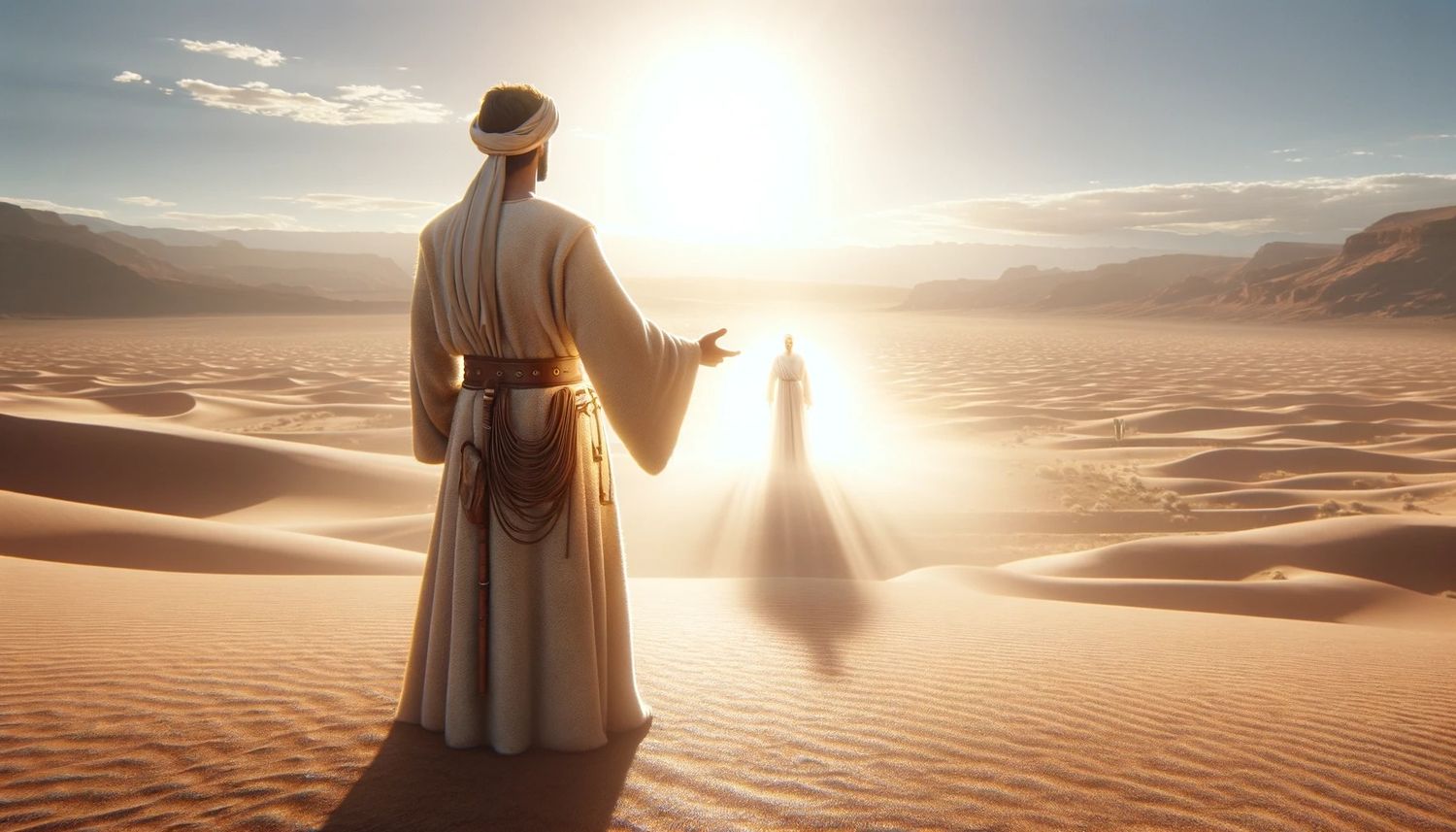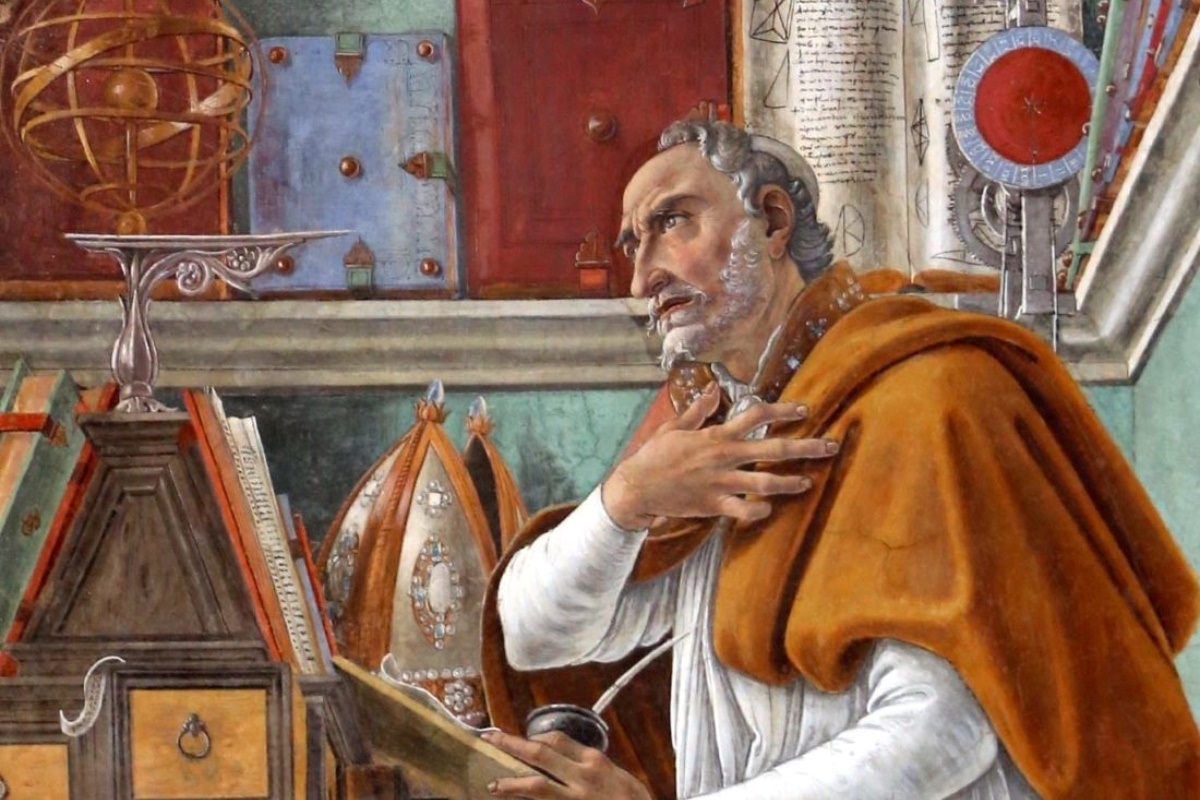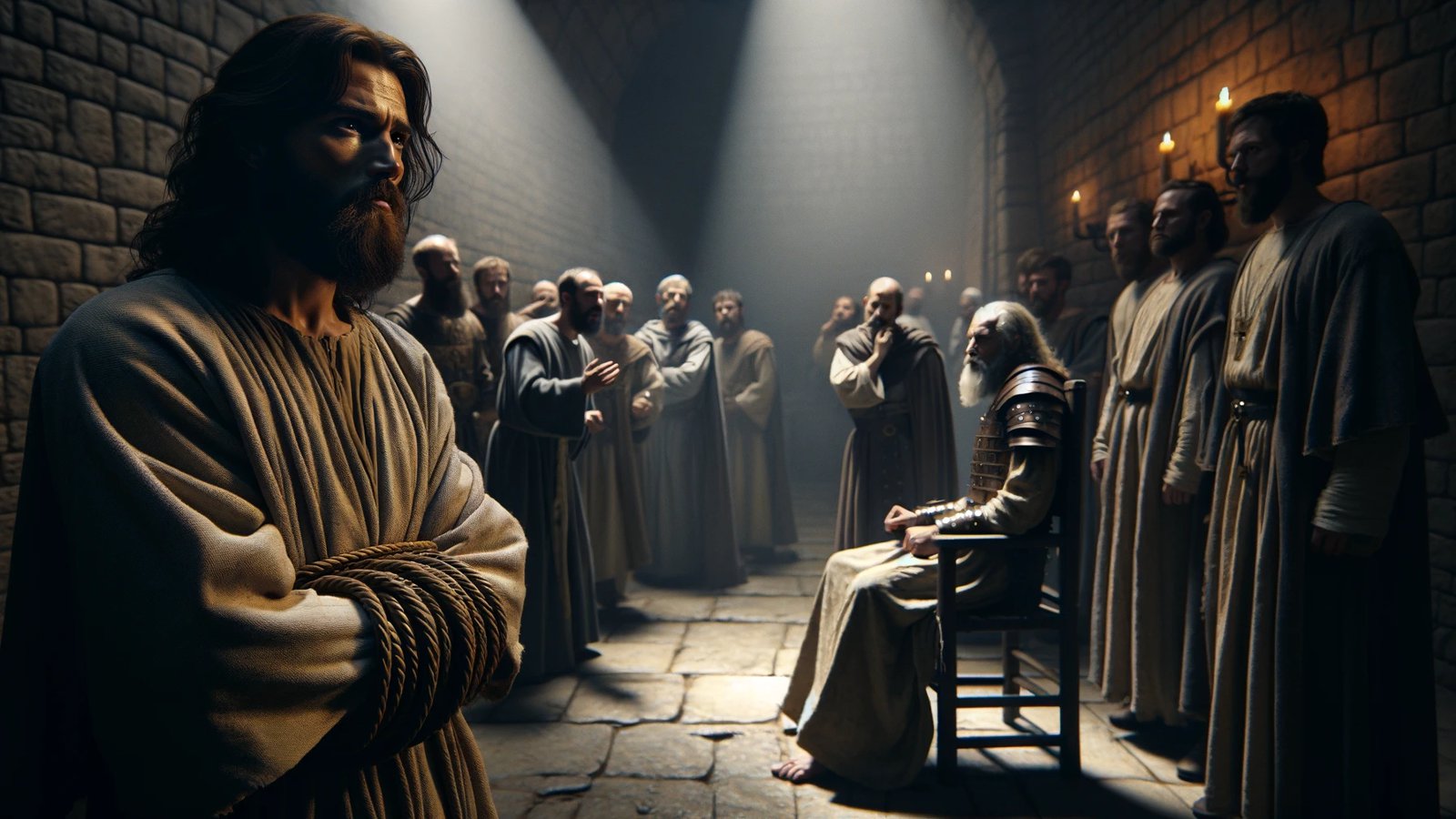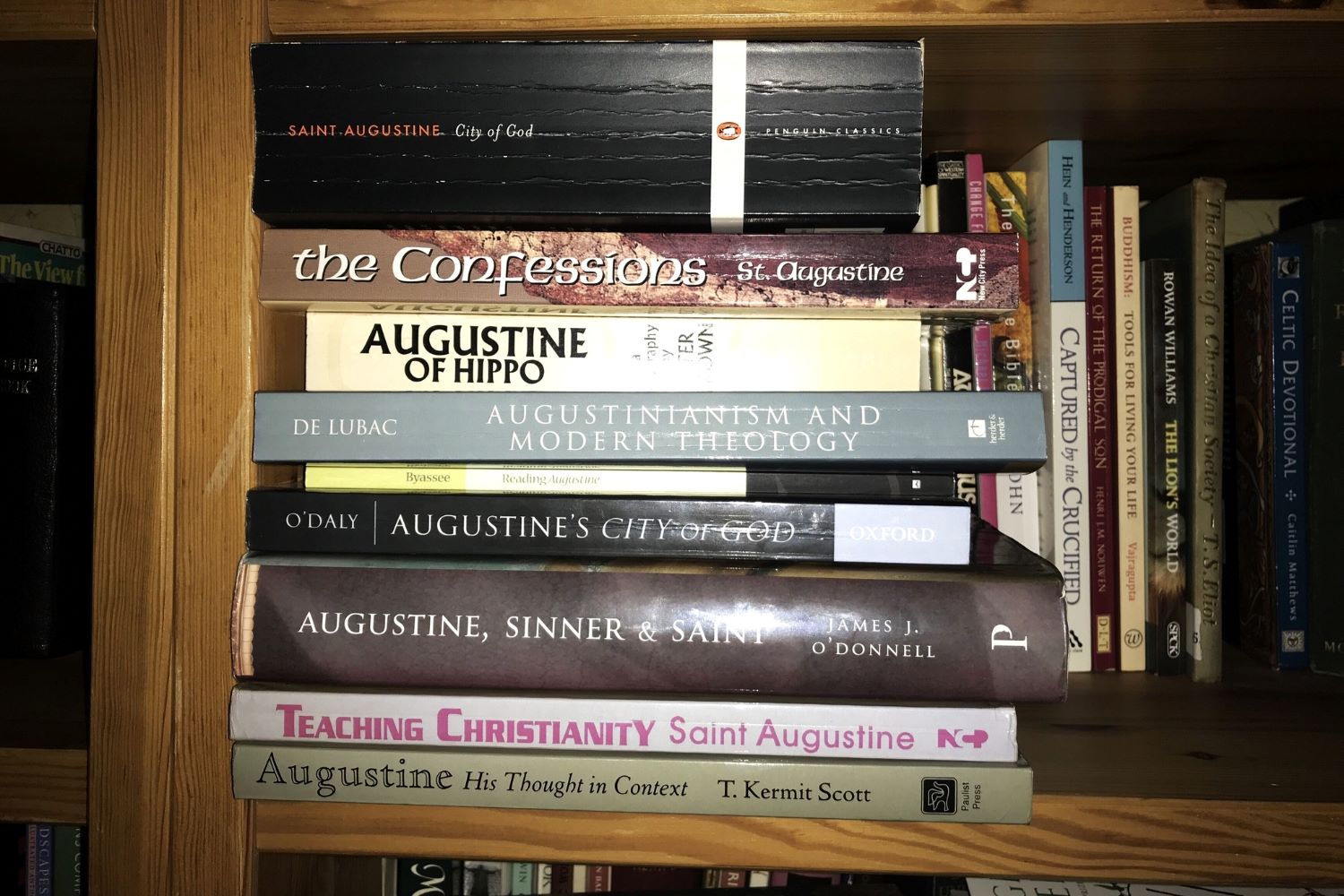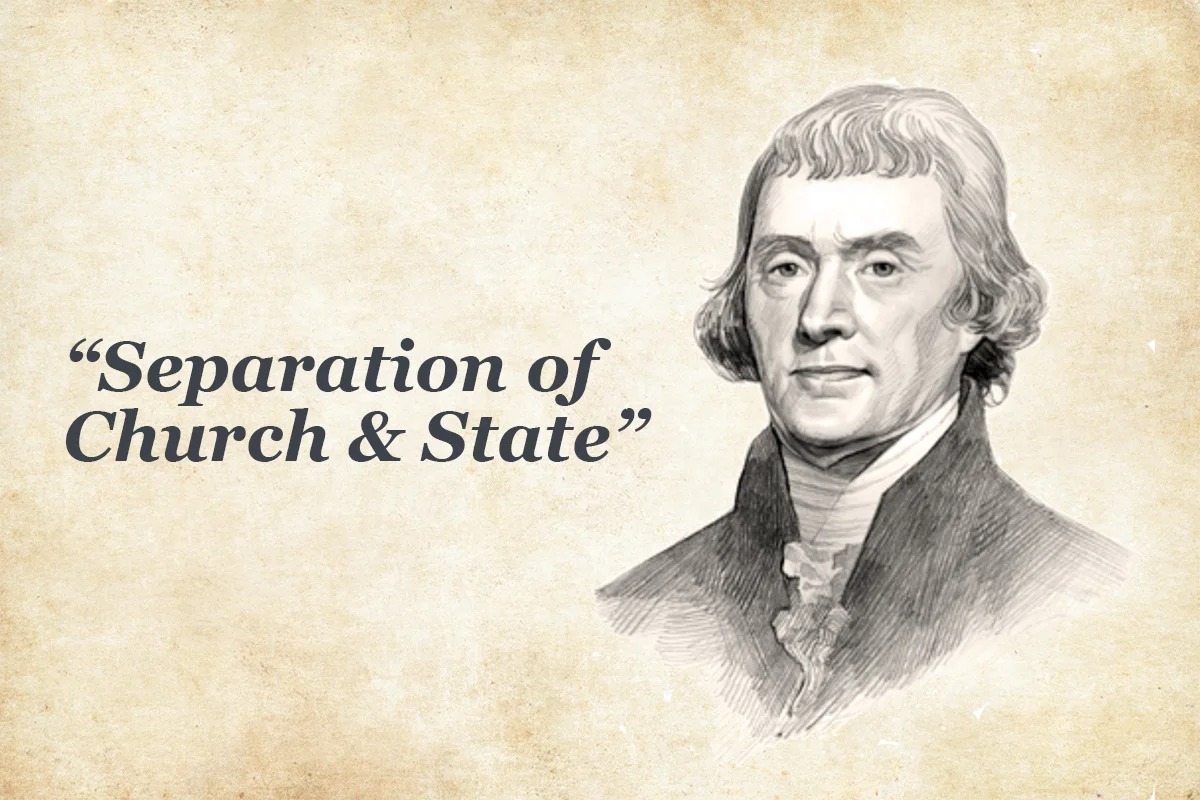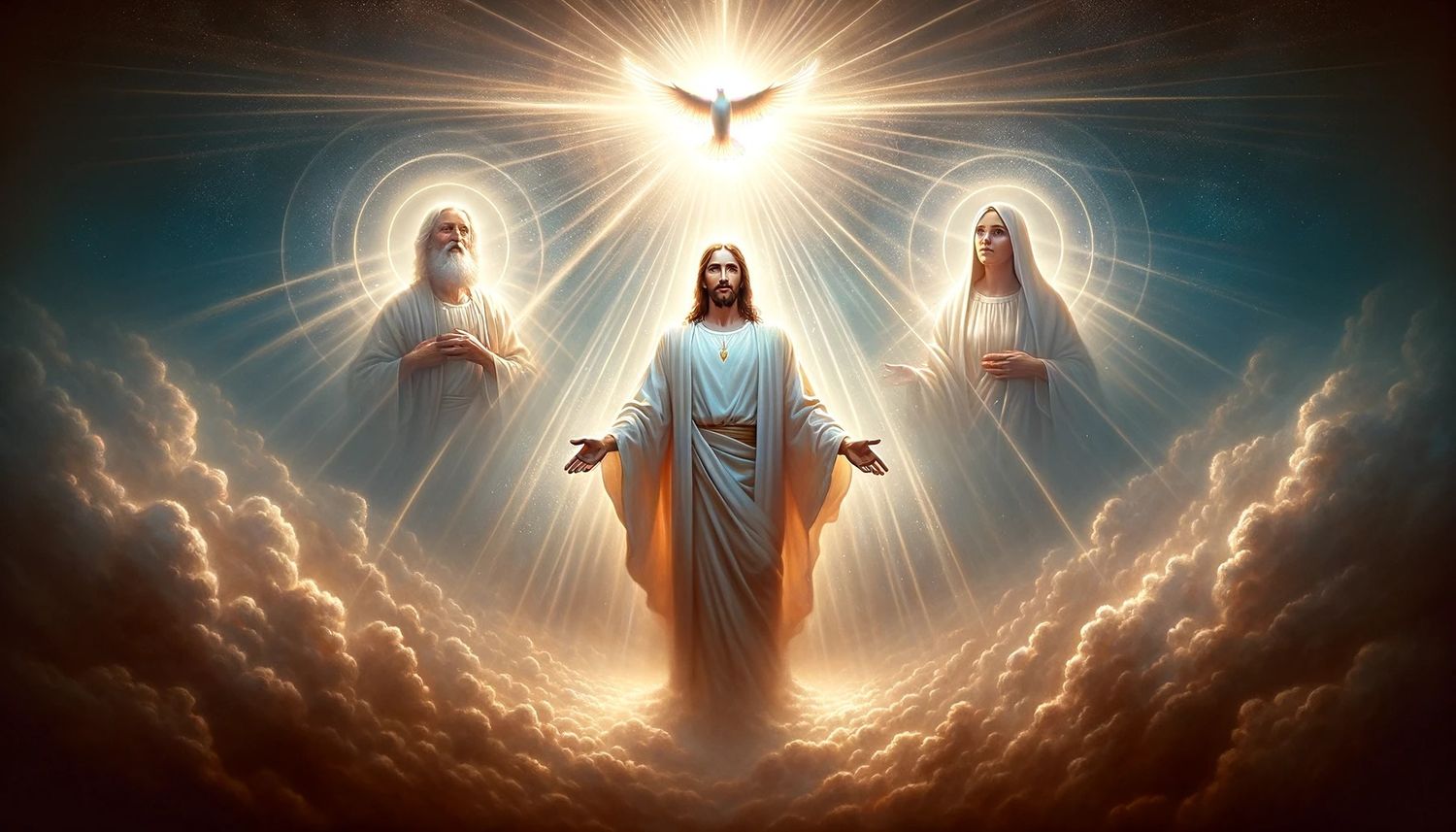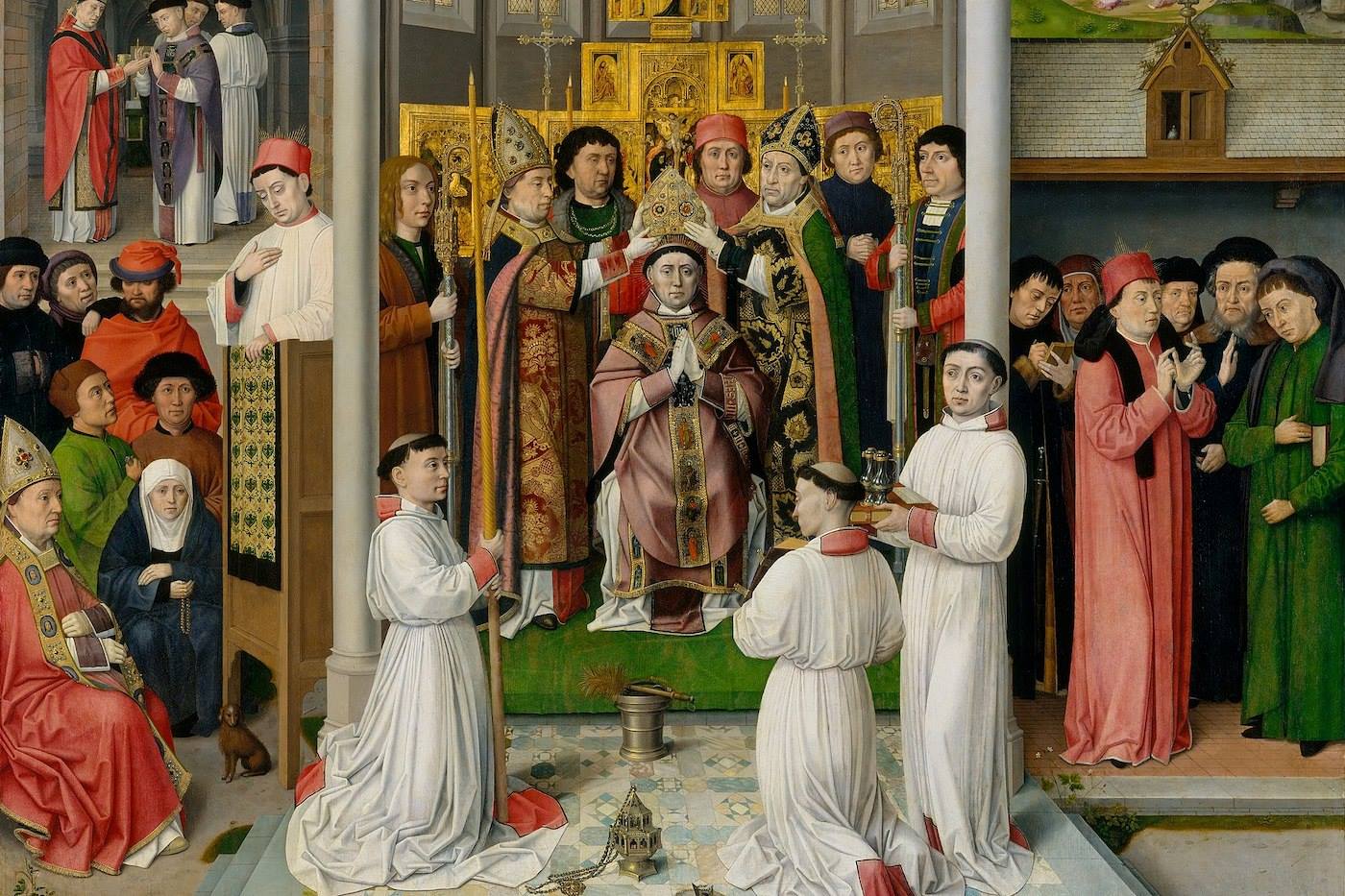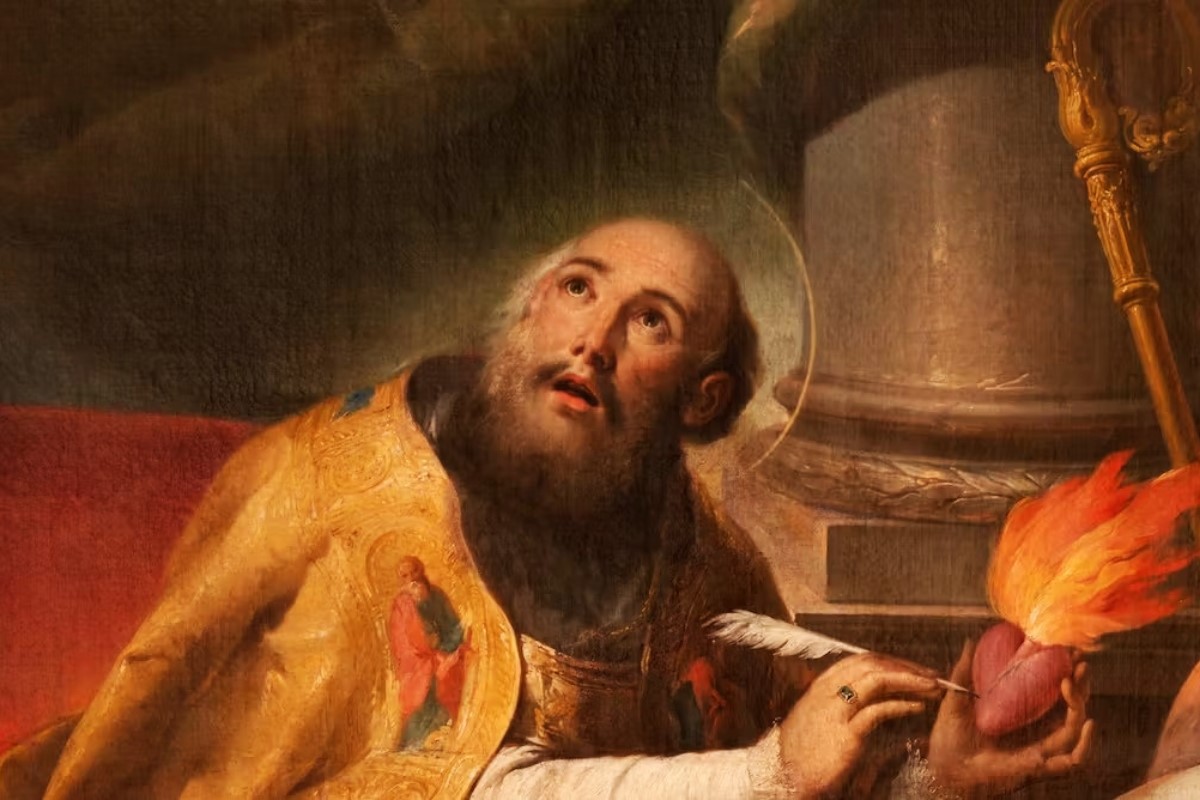Home>Theology and Spirituality>What Did Augustine Say About The Trinity
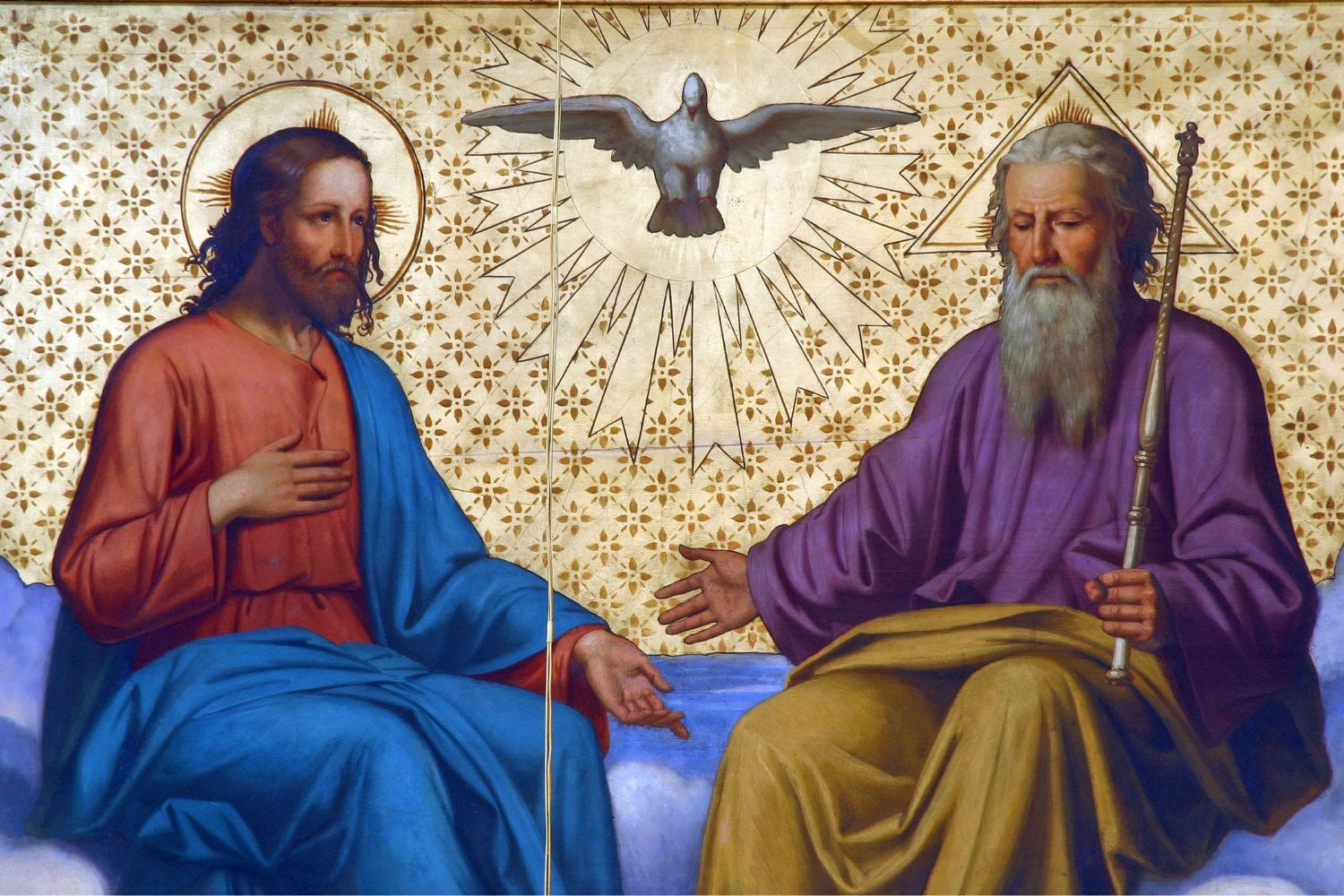

Theology and Spirituality
What Did Augustine Say About The Trinity
Published: February 10, 2024
Peter Smith, Editorial Director at Christian.net, combines deep insights into faith, politics, and culture to lead content creation that resonates widely. Awarded for his contributions to religious discourse, he previously headed a major organization for religious communicators, enhancing dialogue on faith's societal impacts.
Discover Augustine's insights on the Trinity and deepen your understanding of theology and spirituality with his profound teachings. Explore his thoughts on this fundamental aspect of Christian faith.
(Many of the links in this article redirect to a specific reviewed product. Your purchase of these products through affiliate links helps to generate commission for Christian.net, at no extra cost. Learn more)
Table of Contents
Introduction
Augustine of Hippo, also known as Saint Augustine, was a prominent theologian and philosopher whose profound insights continue to shape Christian thought and spirituality. His exploration of the Trinity, a foundational doctrine in Christianity, remains a cornerstone of theological discourse. Augustine's elucidation of the Trinity not only influenced his contemporaries but also reverberates through the centuries, impacting the understanding of God as Father, Son, and Holy Spirit.
In this article, we delve into Augustine's profound understanding of the Trinity, examining his theological contributions and their enduring significance. By exploring Augustine's perspective on the Father, Son, and Holy Spirit, we gain insight into the complexities of this central Christian doctrine and its implications for spiritual life and belief. Furthermore, we will explore Augustine's enduring influence on the doctrine of the Trinity, shedding light on the lasting impact of his theological legacy.
As we embark on this exploration of Augustine's insights into the Trinity, we are invited to contemplate the profound mysteries of God's triune nature and consider how Augustine's teachings continue to enrich and challenge our understanding of this foundational aspect of Christian faith. Through this journey, we aim to gain a deeper appreciation for Augustine's theological acumen and the enduring relevance of his contributions to the Christian tradition.
Read more: What Did Augustine Say About Reality
Augustine's Understanding of the Trinity
Augustine's understanding of the Trinity is a profound exploration of the complex interplay between the Father, Son, and Holy Spirit within the Godhead. Central to his theological framework is the concept of unity in diversity, wherein the three persons of the Trinity are distinct yet inseparable, forming a harmonious union. Augustine grappled with the mystery of the Trinity, seeking to articulate its intricacies while acknowledging the limitations of human language and comprehension in encapsulating the divine.
At the heart of Augustine's understanding is the notion of relationality within the Trinity. He expounded on the eternal procession of the Son from the Father and the Holy Spirit from both the Father and the Son, emphasizing the interdependence and mutual love among the divine persons. Augustine's emphasis on the relational dynamics within the Trinity underscores the inseparable bond and perfect unity that characterizes the divine community.
Furthermore, Augustine's exploration of the Trinity reflects his profound engagement with the concept of love as a defining attribute of God. He posited that the mutual love between the Father, Son, and Holy Spirit serves as a model for human relationships and underscores the centrality of love in the Christian life. Augustine's understanding of the Trinity thus extends beyond theological abstraction, offering profound insights into the implications of divine love for human existence and community.
In his seminal work "De Trinitate" (On the Trinity), Augustine delved into the intricacies of the Triune God, employing analogies and philosophical reflections to elucidate the mysterious nature of the Trinity. His approach combined philosophical inquiry with scriptural exegesis, demonstrating a holistic engagement with the theological task of articulating the Trinity. Augustine's nuanced exploration of the Trinity continues to inspire theologians and believers, inviting them to contemplate the unfathomable depths of God's triune nature.
Augustine's understanding of the Trinity transcends mere doctrinal exposition; it embodies a profound spiritual vision that invites contemplation and awe. His insights into the relationality, love, and unity within the Trinity offer a rich tapestry for theological reflection and spiritual nourishment. As we grapple with the complexities of the Trinity, Augustine's enduring legacy beckons us to embrace the mystery with humility and reverence, recognizing that our understanding of God's triune nature is but a dim reflection of the divine reality.
The Father, Son, and Holy Spirit in Augustine's Theology
In Augustine's theology, the Father, Son, and Holy Spirit constitute the divine Trinity, a foundational concept that underpins Christian belief and understanding of God. Augustine grappled with the intricate relationship among the three persons of the Trinity, seeking to articulate their distinct roles while emphasizing their essential unity. Central to his theological framework was the concept of the Father as the unoriginate source, the Son as eternally begotten, and the Holy Spirit as proceeding from the Father and the Son.
Augustine's exploration of the Father, Son, and Holy Spirit reflected his profound engagement with the relational dynamics within the Trinity. He expounded on the eternal procession of the Son from the Father and the Holy Spirit from both the Father and the Son, emphasizing the inseparable bond and mutual love among the divine persons. This relationality within the Trinity underscored the perfect unity and harmonious communion that characterized the divine community, offering a profound model for interpersonal relationships and communal harmony.
Furthermore, Augustine's theological reflections on the Trinity underscored the significance of love as a defining attribute of God. He contended that the mutual love between the Father, Son, and Holy Spirit served as a paradigm for human relationships, highlighting the centrality of love in the Christian life. Augustine's emphasis on the role of love within the Trinity resonated deeply with his broader theological vision, wherein love was regarded as the animating force that sustains the created order and fosters spiritual transformation.
In his seminal work "De Trinitate" (On the Trinity), Augustine delved into the complexities of the Father, Son, and Holy Spirit, employing analogies and philosophical reflections to elucidate the mysterious nature of the Trinity. His multifaceted exploration of the Trinity encompassed scriptural exegesis, philosophical inquiry, and contemplative reflection, offering a comprehensive framework for understanding the divine triad.
Augustine's theological insights into the Father, Son, and Holy Spirit continue to inspire theologians and believers, inviting them to contemplate the profound implications of the Trinity for their spiritual lives. His nuanced articulation of the Trinity as a dynamic communion of love and unity serves as a perennial source of theological reflection and spiritual nourishment, enriching the Christian understanding of God as Father, Son, and Holy Spirit.
Augustine's Influence on the Doctrine of the Trinity
Augustine's profound insights into the doctrine of the Trinity have exerted a lasting influence on Christian theology and spirituality, shaping the understanding of God as Father, Son, and Holy Spirit. His meticulous exploration of the Trinity, characterized by a harmonious interplay of distinct yet inseparable divine persons, has left an indelible mark on theological discourse and doctrinal development.
One of Augustine's enduring contributions to the doctrine of the Trinity lies in his emphasis on the relational dynamics within the Godhead. His elucidation of the eternal procession of the Son from the Father and the Holy Spirit from both the Father and the Son underscored the interconnectedness and mutual love among the divine persons. This relational framework profoundly influenced subsequent theological reflections on the Trinity, highlighting the inseparable bond and perfect unity that characterize the divine community.
Furthermore, Augustine's articulation of the Trinity as a dynamic communion of love and unity has permeated Christian thought, shaping the understanding of God's triune nature as a model for harmonious relationships and communal flourishing. His emphasis on the centrality of love within the Trinity has resonated deeply with theologians and believers, inspiring a vision of divine love as the animating force that sustains the created order and fosters spiritual transformation.
Moreover, Augustine's holistic engagement with the Trinity, integrating philosophical inquiry with scriptural exegesis and contemplative reflection, has set a precedent for theological exploration of this foundational doctrine. His seminal work "De Trinitate" (On the Trinity) continues to serve as a touchstone for theologians, inviting them to grapple with the complexities of the Trinity and its implications for Christian belief and practice.
The enduring legacy of Augustine's influence on the doctrine of the Trinity is evident in the ongoing theological dialogue surrounding this foundational tenet of Christian faith. His profound insights into the relationality, love, and unity within the Trinity have enriched the Christian understanding of God as Father, Son, and Holy Spirit, fostering a deeper appreciation for the mysteries of divine triunity and their profound implications for spiritual life and belief.
Conclusion
In conclusion, Augustine of Hippo's profound insights into the Trinity have left an indelible mark on Christian theology and spirituality, shaping the understanding of God as Father, Son, and Holy Spirit. His nuanced exploration of the Trinity as a dynamic communion of love and unity has not only enriched theological discourse but also invited believers to contemplate the profound implications of the Trinity for their spiritual lives.
Augustine's emphasis on the relational dynamics within the Trinity, underscored by the eternal procession of the Son from the Father and the Holy Spirit from both the Father and the Son, has highlighted the interconnectedness and mutual love among the divine persons. This relational framework serves as a compelling model for harmonious relationships and communal flourishing, resonating deeply with the human longing for authentic connection and unity.
Furthermore, Augustine's articulation of the centrality of love within the Trinity has reverberated through the centuries, inspiring a vision of divine love as the animating force that sustains the created order and fosters spiritual transformation. His profound insights into the implications of divine love for human existence continue to enrich the Christian understanding of God's triune nature, inviting believers to embody love in their relationships and interactions with the world.
Moreover, Augustine's holistic engagement with the Trinity, integrating philosophical inquiry with scriptural exegesis and contemplative reflection, has set a precedent for theological exploration of this foundational doctrine. His seminal work "De Trinitate" (On the Trinity) stands as a testament to the enduring relevance of his theological legacy, inviting theologians and believers to grapple with the complexities of the Trinity and its implications for Christian belief and practice.
As we reflect on Augustine's profound understanding of the Trinity, we are reminded of the enduring significance of his contributions to the Christian tradition. His insights into the relationality, love, and unity within the Trinity continue to inspire theological reflection and spiritual nourishment, inviting believers to embrace the mystery of the Trinity with humility and reverence. Through Augustine's enduring legacy, we are invited to deepen our appreciation for the mysteries of divine triunity and their profound implications for spiritual life and belief.


